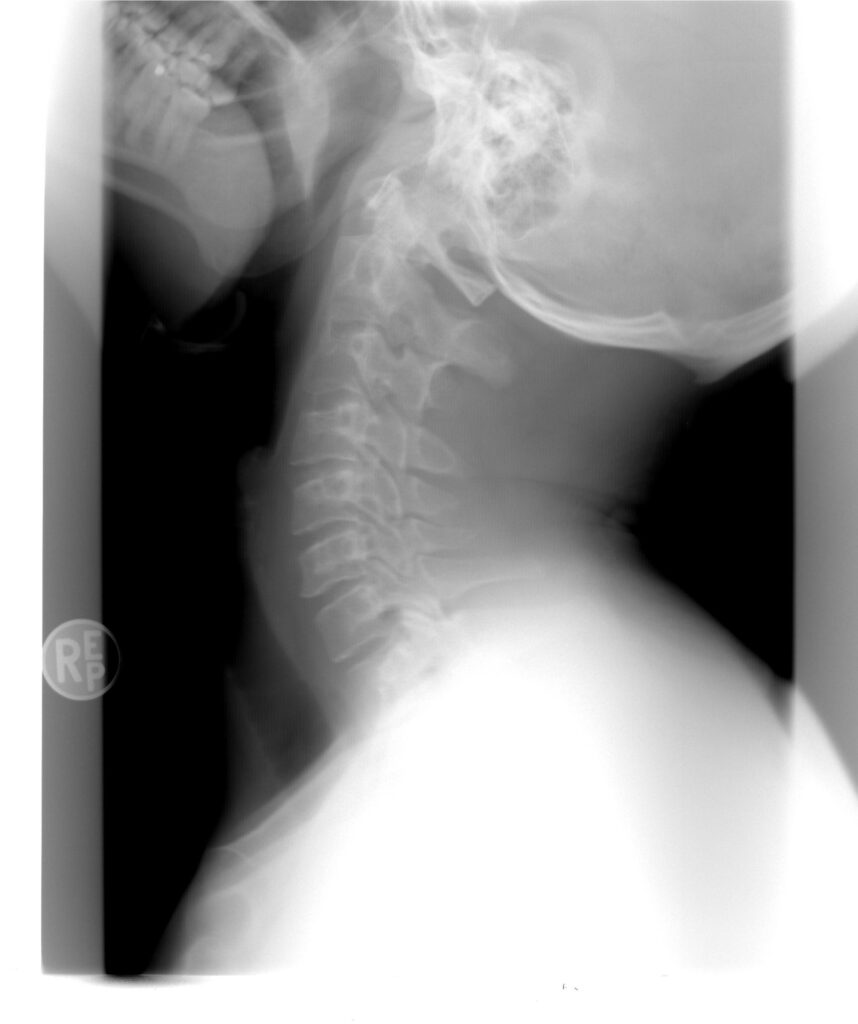Did you know that most injuries that produce a concussion also result in neck trauma?1 You see, it takes about 13 times less force to traumatize your neck than it does to produce a mild traumatic brain injury. Said another way, if you received enough force to produce a concussion, you would have also far exceeded the amount of force required to produce a neck injury.
Concussions and neck injuries tend to go hand-in-hand.
Upper Cervical Complications
The most vulnerable part of the neck is the upper neck region where the head and neck connect. This area—which is also known as the Craniocervical Junction (CCJ)—is not only the most susceptible part of the neck to injury and misalignment when you experience a concussion, but it is also the most neurologically sensitive area.
That’s why you can experience a handful of problems when you receive head and neck trauma. It can go far beyond just feeling head or neck pain. Most of the nerves that run through the body pass right through this area.
Auto Accidents, Sports, & Injuries Increase Risk for Concussions and Neck Injury

We often associate risk for a concussion with auto accidents. But, getting a concussion is also a common injury in recreational and organized sports.2 Luckily, the majority of people who suffer a concussion will experience complete resolution of their symptoms over time. However, approximately 38% will continue to experience problems beyond 3 months. People who experience persisting problems beyond the 3-month mark are considered to be now suffering from what’s called post-concussion syndrome.3
But wait, there’s more!
Research Points Toward Increased Risk of Neurodegenerative Diseases
Research is now focusing on the potential for an upper neck-head injury to alter the normal flow of cerebral spinal fluid and blood flow into and out of head and brain. There are some indications that if this occurs, the person may then be at an increased risk for the development of neurodegenerative disease later in life.
If so, the problems associated with post-concussion syndrome may go way beyond the initial onset of symptoms. It may in fact set the stage for an increased risk of developing neurodegenerative issues and diseases several decades after the initial injury if it is not corrected.
Most Common Symptoms
Often individuals suffering from post-concussion syndrome experience chronic headaches that originate from the upper cervical neck area.4 However, some of the other more common symptoms would include things like dizziness, vertigo, and balance issues, ringing in the ears, decreased focus, concentration and memory issues, nausea, fatigue, sensitivity to light and sound, sleep disturbances, and even anxiety and depression.5
Upper Cervical Care Offers Help

Upper cervical doctors use very specific imaging of the craniocervical junction and then perform a very precise analysis of these images in order to obtain a 3-dimensional perspective of this very neurologically sensitive area.
Measurements are made down to a tenth of a degree to detect the slightest misalignment that may be contributing to the persisting symptoms. If indicated, upper cervical care is performed without any twisting or cracking of the neck and has the potential to make meaningful changes both from a functional and symptomatic perspective.
Positive Results
The goal is to reduce any upper neck misalignment so that the nervous system has the greatest potential to heal and restore normal nervous system function—possibly even improving both cerebral spinal fluid flow and blood flow into and out of the brain. Thereby, potentially setting the stage for the body to properly heal and improve one’s quality of life.
If you, or someone you know has experienced head or neck trauma, isn’t it about time to get a precise upper cervical evaluation? Contact THRIVE Head & Spinal Care for Upper Cervical Care in San Antonio, TX.
- https://www.ncbi.nlm.nih.gov/pubmed/27529079
- https://www.ncbi.nlm.nih.gov/pubmed/30705232
- https://www.ncbi.nlm.nih.gov/pubmed/30554897
- https://www.ncbi.nlm.nih.gov/pubmed/?term=cervical+musculoskeletal+dysfunction+in+post-concussional+headache
- https://www.ncbi.nlm.nih.gov/pubmed/30482344

